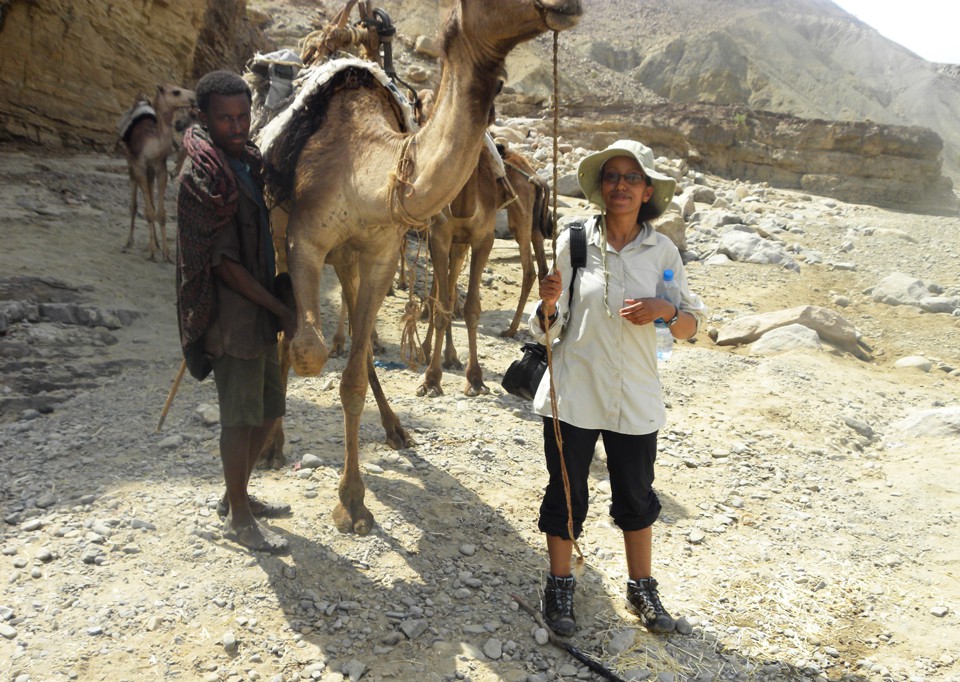Doctoral candidate in anthropology Helina Woldekiros’ research on ancient salt caravans in her native Ethiopia brings her to the Danakil Depression, among the hottest and lowest places on Earth.

Trekking by camel with local Afar pastoralists, Woldekiros excavates for evidence of trade activity along the ancient route. She has already identified at least three major archaeological sites on the Afar salt route.
“In Africa, social, political and economic structures have been shaped by salt production, salt distribution and long-distance trade in areas where salt is a critical resource,” she explained.
Her discoveries suggest that local or regional exchange in commodities from the Afar lowlands to the north Ethiopian plateau occurred as early as the Aksumite (CE 150-700) period.
After graduation, Woldekiros will continue her research in Germany as a Volkswagen Foundation Postdoctoral Fellow at the Institute of Palaeoanatomy and History of Veterinary Medicine, Ludwig Maximilian University, Munich.
“My goal is to develop my expertise in the areas of history, archaeology and cultural heritage management and apply this knowledge by teaching about and advocating for the role of Africa in the global world,” she said.
Becoming the first woman archaeologist from her country and the first female zooarchaeologist from Africa has afforded Woldekiros a new understanding about the cultural, economic and political situation in her own country. Her experience here has forever changed her perceptions on issues like women’s rights, government, science and humanity, she said.
Related Stories
2014 Class Acts: Achieving Excellence
2014 Class Acts: Making Memories
2014 Class Acts: Serving the Community
2014 Class Acts: Shaping the Future
2014 Class Acts: Sparking Innovation